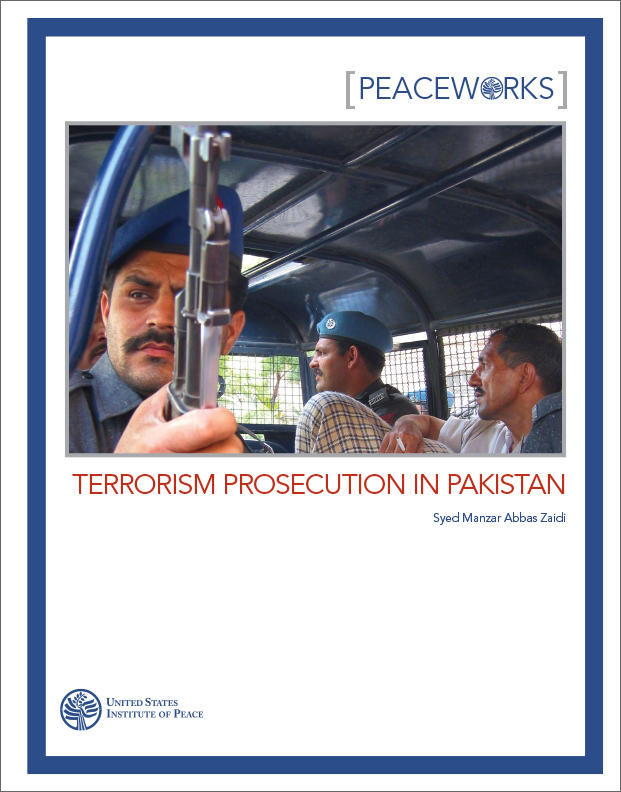Pakistan’s criminal justice system related to terrorism prosecution is in urgent need of reform. Conviction rates in the country’s anti-terrorism courts (ATCs) continue to be extremely low. This report highlights the numerous problems contributing to the system’s failure, including absent defense councils and witnesses, limited use of forensic evidence, poor investigative capacity, and lack of coordination between the police and prosecution. Compounding these problems is the high number of cases going through the ATCs, notably due to the 1997 Anti-Terrorism Act’s broad definition of terrorism. Any reforms or new laws aimed at reducing terrorism must account for these long-standing implementation issues.
Summary
- Despite passage of the Anti-Terrorism Act (ATA) in 1997 and, subsequently, the creation of fifty-four anti-terrorism courts (ATCs), conviction rates in Pakistan continue to be extremely low.
- Numerous amendments to the law have increased the severity of penalties for terrorism crimes, but little attention has been paid to court administration and case management.
- The current definition of terrorism includes many offenses that are also captured under other Pakistani criminal laws. Thus, ATCs are overloaded with cases both related to and unrelated to terrorism, contributing to major backlogs.
- In addition to long delays, procedural errors and antiquated practices plague the investigation and prosecution of terrorism cases; and exacerbating the problem is that numerous special provisions of the ATA are not being applied.
- The courts rely heavily on witness testimony—in nearly total exclusion to other types of evidence, including forensic evidence.
- In many cases, witnesses who have purportedly seen the terrorist act are actually the only people who prosecutors can compel to depose, usually police officers.
- Often, witnesses fail to come forward because of fear, since witness protection is only paid lip service in Pakistan.
- The practice of presenting stock witnesses or fabricating stories about the crime leads to multiple discrepancies and frequently results in acquittal.
- Any reforms or new laws aimed at reducing terrorism must account for current implementation issues, especially related to the broad definition of terrorism, absent defense councils and witnesses, lack of precise forensic evidence, poor investigative capacity, and lack of coordination between the police and prosecution.
About the Report
This report analyzes the capacity of the Pakistani police and prosecution to successfully try terrorism cases in the country’s anti-terrorism courts (ATCs). Based on a study of 235 ATC judgments and group discussions with experts and stakeholders, the report highlights issues and recommendations related to the overall criminal justice system, implementation of the Anti-Terrorism Act, court administration and case management, police investigation, and standards of evidence.
About the Author
Syed Manzar Abbas Zaidi has extensive experience as an advisor to the public and private sectors in Pakistan regarding the criminal justice system and counterterrorism. He has published three books and several papers on terrorism and extremism, as well as research on security sector reform. He has been a lecturer of policing, criminal investigation, and terrorism at the University of Central Lancashire, United Kingdom, and a counterterrorism and security preparedness trainer in various countries.
